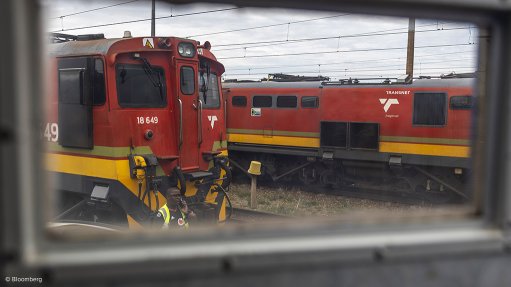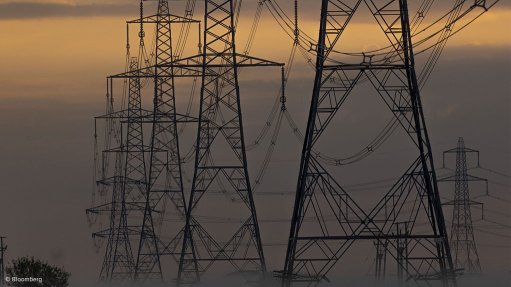Transportation focus shifting to people-centred approach
There is an increased focus on the role of transportation in society and how it can be used to improve peoples’ quality of life, rather than focusing only on building and maintaining systems.
This was outlined by Transportation Research Board (TRB) executive director Victoria Sheehan during a plenary address on the second day of the yearly Southern African Transport Conference, which is being held this week at the Council for Scientific and Industrial Research, in Pretoria, under the theme “Upskilling and reskilling the transport industry for current and future challenges”.
TRB, which provides leadership in transportation improvements and innovation through information exchange, research and advice regarding all modes of transportation, is seeking to make transportation equitable and accessible, tackling a broad range of issues holistically.
While her work is centred on the US, Sheehan pointed out that the TRB was an international organisation and, therefore, had applicability for the Southern African region. She also saw opportunities for collaboration between the various regions of the world.
Sheehan referenced insights from the TRB executive committee’s latest publication on critical issues in transportation, which she said marked a shift from previous iterations on how transportation was perceived in the US and globally, with people now at the centre.
One of the challenges that the TRB’s work focuses on is addressing safety, which entails aiming to reduce the number of road accidents and fatalities, but also to ensure that transportation is safe for cyclists and pedestrians among others.
Moreover, there is a focus on ensuring safety in other transportation sectors, such as rail and ships.
Sheehan emphasised the need to continue to advocate for technology use to improve safety, as, despite some improvements, it was not yet at the level it needed to be.
Another challenge being grappled with is that of climate change, with this requiring, firstly, the implementing of a system that allows quick reaction and access after disasters, such as floods.
In conjunction with this, there is the need to build infrastructure to be resilient to withstand upcoming disasters and persevere in the long run.
Also, part of addressing climate change entails looking at opportunities for decarbonisation in transportation, which will require efforts and investment in new infrastructure to support this.
Sheehan emphasised that transportation should also support economic growth, through initiatives such as expanding the system to enable people to access opportunities more easily, while ensuring that such transportation was affordable and proportionate to earning levels.
Sheehan said equity elements, which were not considered when many transportation systems were initially built, were also being considered currently.
One example is that, in the past, systems largely catered to a male-dominated workforce going to and from work, whereas it should now account for changing demographics, and for other users with varying trip purposes.
Moreover, work needs to be done to ensure more gender parity in the transportation workforce, for this to be reflective of the users, with female representation still being very low.
Work is also being done to mitigate the negative impacts of transportation systems, such as environmental impacts, air pollution and noise pollution, on public health.
There was also work to bolster active transportation, such as having safe places to walk and cycle, to improve health and reduce reliance on cars. Sheehan said this required better decision-making from government and also presented opportunities for the private sector to invest in facilities that supported this.
Sheehan further noted an opportunity to use data to track people’s movements to see which mode of transportation was preferable and most efficient, so that investment decisions and initiatives could be geared accordingly.
Comments
Announcements
What's On
Subscribe to improve your user experience...
Option 1 (equivalent of R125 a month):
Receive a weekly copy of Creamer Media's Engineering News & Mining Weekly magazine
(print copy for those in South Africa and e-magazine for those outside of South Africa)
Receive daily email newsletters
Access to full search results
Access archive of magazine back copies
Access to Projects in Progress
Access to ONE Research Report of your choice in PDF format
Option 2 (equivalent of R375 a month):
All benefits from Option 1
PLUS
Access to Creamer Media's Research Channel Africa for ALL Research Reports, in PDF format, on various industrial and mining sectors
including Electricity; Water; Energy Transition; Hydrogen; Roads, Rail and Ports; Coal; Gold; Platinum; Battery Metals; etc.
Already a subscriber?
Forgotten your password?
Receive weekly copy of Creamer Media's Engineering News & Mining Weekly magazine (print copy for those in South Africa and e-magazine for those outside of South Africa)
➕
Recieve daily email newsletters
➕
Access to full search results
➕
Access archive of magazine back copies
➕
Access to Projects in Progress
➕
Access to ONE Research Report of your choice in PDF format
RESEARCH CHANNEL AFRICA
R4500 (equivalent of R375 a month)
SUBSCRIBEAll benefits from Option 1
➕
Access to Creamer Media's Research Channel Africa for ALL Research Reports on various industrial and mining sectors, in PDF format, including on:
Electricity
➕
Water
➕
Energy Transition
➕
Hydrogen
➕
Roads, Rail and Ports
➕
Coal
➕
Gold
➕
Platinum
➕
Battery Metals
➕
etc.
Receive all benefits from Option 1 or Option 2 delivered to numerous people at your company
➕
Multiple User names and Passwords for simultaneous log-ins
➕
Intranet integration access to all in your organisation
















